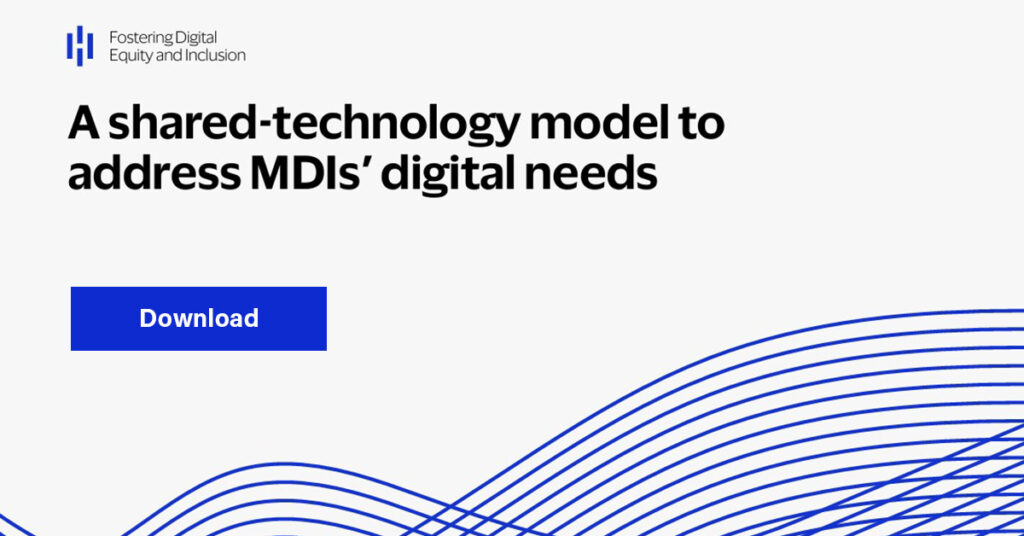Minority Depository Institutions (MDIs) are unique in their ability to understand and serve their communities better than any other segment of the financial services industry. However, these important institutions face a host of challenges, including a disproportionate burden in attempting to provide mobile-banking and other technology tools that customers expect.
An improvement in their digital capability would strengthen MDIs’ ability to fulfill their mission of serving minority-owned businesses and people of color. Whereas larger banks have the resources to adopt state-of-the-art technology on their own, the best approach for MDIs — like other community banks — may be to develop shared digital solutions that multiple financial institutions can access.
A new paper written by the Alliance for Innovative Regulation (AIR), National Bankers Association (NBA) and Visa Economic Empowerment Institute — and published by the VEEI — proposes collective action in developing MDI digital strategies to enhance their competitiveness. A separate initiative — developed jointly by AIR, NBA and Inclusiv, and funded by Visa — aims to provide a digital modernization roadmap for solutions developed by vendors that multiple MDIs can plug into without incurring prohibitive costs.

“A review of other programs addressing the needs of small financial institutions, including MDIs, suggests that the collective power and strength of a shared-services approach—one in which multiple financial institutions can access and utilize a shared set of digital solutions—can help community banks and credit unions maintain a competitive edge in the face of multiple headwinds,” the authors wrote. “The Digital Modernization Project presents a new testing ground for that approach to solve the digital challenges of institutions that cater to underserved communities.”
The paper was written by Nicole A. Elam, President and CEO of the NBA; AIR Cofounder and Executive Director, David Ehrich; Joe Adler, Head of Content for AIR; and VEEI Executive Director Barbara Kotschwar. An earlier version of this research paper was posted by the Georgetown University Law Center’s Institute of International Economic Law as part of DC Fintech Week 2022.
The article cites recent examples of shared-services programs and other initiatives by regulators and private-sector vendors focused on developing common tools of particular benefit to financial institutions regardless of size.
“These arrangements provide resources for smaller financial institutions to implement changes that will enable them to compete in a more digital and globally connected financial world, with new risks and opportunities,” the authors wrote. “These programs have addressed everything from digital innovation initiatives, to strengthening cybersecurity defenses, to small-business lending ventures, to pandemic responses.”
Stay informed by joining our mailing list